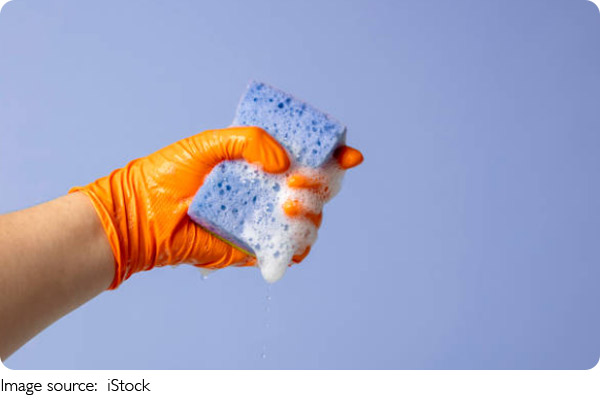Smart Cleaning Choices

We all want a clean and tidy home, but let's be honest—cleaning isn't anyone's favorite way to spend a weekend. The good news? Picking the right cleaning tools can actually make things a lot easier and faster.
Today, let's take a close look at different household cleaning tools, the pros and cons of each, and how we can choose the best ones for our homes.
The classic broom and dustpan
This basic pair is found in almost every home. Brooms are great for sweeping up dust, hair, and crumbs on hard floors. They're lightweight, easy to use, and don't need electricity. However, they're not great at trapping fine dust or getting into tight corners. If we use them too quickly, they can stir dust into the air.
Best for: Daily sweeping in dry areas like the kitchen or hallway
Not ideal for: Deep cleaning or reaching under furniture
Vacuum cleaners—fast but bulky
Vacuum cleaners can pick up way more than a broom, especially when it comes to carpets, sofas, and mattresses. They come in many types: upright, canister, stick, and handheld. Each type has its own purpose.
• Upright vacuums are strong and good for big spaces.
• Handheld vacuums are perfect for quick touch-ups or cleaning the car.
• Stick vacuums are lighter and easier to move around, great for everyday use.
But keep in mind, vacuums need power, take up more space, and can be noisy. Also, filters need to be cleaned or replaced from time to time.
Best for: Carpeted rooms, sofas, curtains, and deep cleaning
Not ideal for: Small homes with little storage space
Mops—wet or dry?
Mops come in different styles—some are dry mops for dusting, and some are wet for scrubbing floors.
• String mops are super absorbent but need a bucket and can get heavy.
• Flat mops with microfiber pads are easy to rinse and dry quickly.
• Spray mops let us control how much water we use—perfect for wooden or laminated floors.
Wet mopping does a good job at removing sticky spots, but it can leave streaks if the floor isn't rinsed well. Dry mops are nice for picking up fine dust without scattering it.
Best for: Tile, vinyl, or hardwood floors
Not ideal for: Thick carpets or heavy-duty messes
Scrub brushes—small but powerful
Sometimes we need elbow grease! Scrub brushes are great for tough spots like grout lines, bathroom tiles, or kitchen sinks. There are small hand-held ones and even electric scrubbers for heavy-duty cleaning.
Manual ones require some strength, but they get the job done. Just be careful with surfaces that scratch easily.
Best for: Bathrooms, sinks, and textured floors
Not ideal for: Delicate surfaces like mirrors or polished furniture
Microfiber cloths—our cleaning MVP
If there's one thing every home should have, it's microfiber cloths. These are gentle, reusable, and great at picking up dust, grease, and water. Plus, they don't need any chemicals to work.
We can use them to clean windows, wipe countertops, polish furniture, and even dry dishes. Just make sure to wash them regularly and avoid fabric softener, which can reduce their power.
Best for: All-purpose cleaning and polishing
Not ideal for: Extremely greasy or oily messes
Feather dusters vs. microfiber dusters
Feather dusters might look fancy, but they often just push dust around. Microfiber dusters, on the other hand, actually grab and hold onto dust. Many of them come with extendable handles, so we can reach high places without climbing.
Best for: Shelves, electronics, and ceiling fans
Not ideal for: Wet surfaces or heavy dust layers
Sponges and scouring pads
For kitchen messes, sponges are a go-to. Soft ones are great for wiping counters and dishes, while scouring pads are good for scrubbing stuck-on food. However, they can easily trap bacteria, so we should replace them regularly.
Some newer versions are antibacterial or made with plant-based fibers, which are safer and more eco-friendly.
Best for: Kitchens and light scrubbing
Not ideal for: Delicate non-stick surfaces

How to choose what we need
So, how do we pick the right tools for our home? Here are some smart tips:
• Think about your home's size and layout. A small flat may not need a bulky vacuum.
• Consider your flooring. Tile and wood floors need different tools than carpeted rooms.
• Your lifestyle matters. Got kids or pets? You'll need quicker, more frequent cleaning tools.
• Storage space counts. Choose compact or multi-purpose tools if you're low on space.
Instead of buying everything at once, we can build our toolkit step by step. Start with the basics—like a microfiber cloth, a mop, and a broom—and add more as needed.
Wrapping up—Clean smarter, not harder
Lykkers, a clean home doesn't have to feel like a full-time job. With the right tools in hand, we can make cleaning faster, easier, and even a bit more enjoyable. Choosing the best cleaning tool isn't about buying the most expensive one—it's about knowing what works best for our own space and daily habits.
What's your favorite cleaning tool or trick that saves you time? Share it with us! Let's help each other keep our homes fresh and stress-free.
-
 Dry Fresh HomeSay Goodbye to Musty Smells! Smart Tips to Keep Your Home Dry and Fresh All Year Round
Dry Fresh HomeSay Goodbye to Musty Smells! Smart Tips to Keep Your Home Dry and Fresh All Year Round -
 Overcoming Speech AnxietyStruggling with Public Speaking? Discover 7 Proven Ways to Beat Your Fear and Speak Confidently!
Overcoming Speech AnxietyStruggling with Public Speaking? Discover 7 Proven Ways to Beat Your Fear and Speak Confidently! -
 Maximize Food NutritionEating All the Right Things But Still Tired? Here's How to Get the Most Nutrients Out of Every Meal!
Maximize Food NutritionEating All the Right Things But Still Tired? Here's How to Get the Most Nutrients Out of Every Meal!